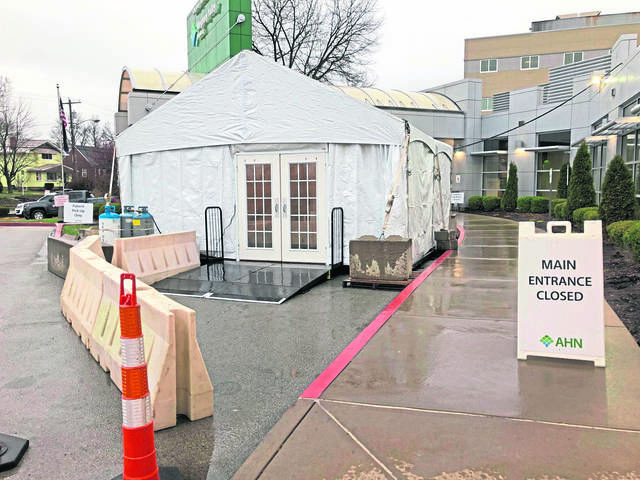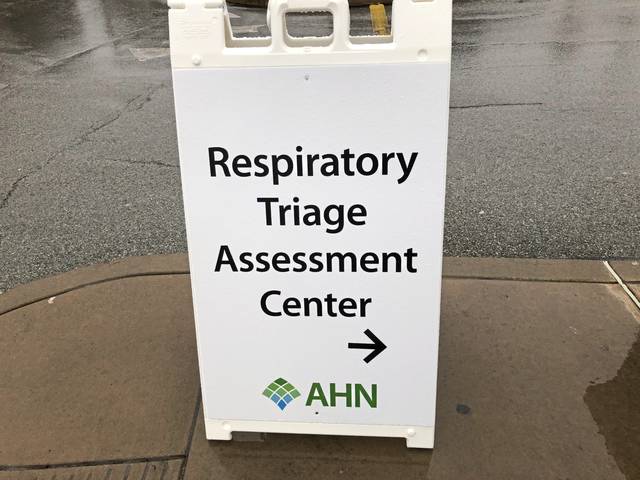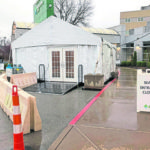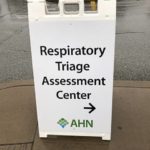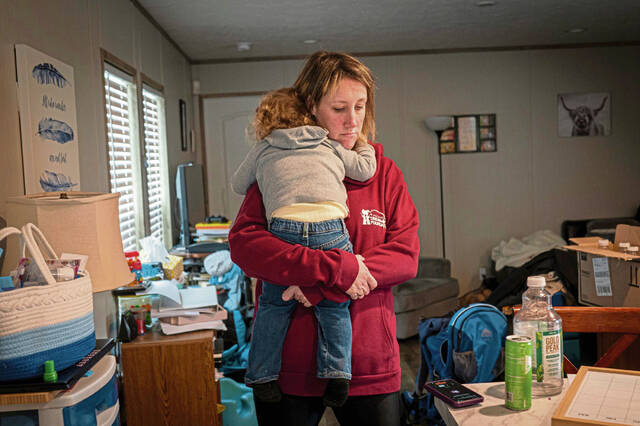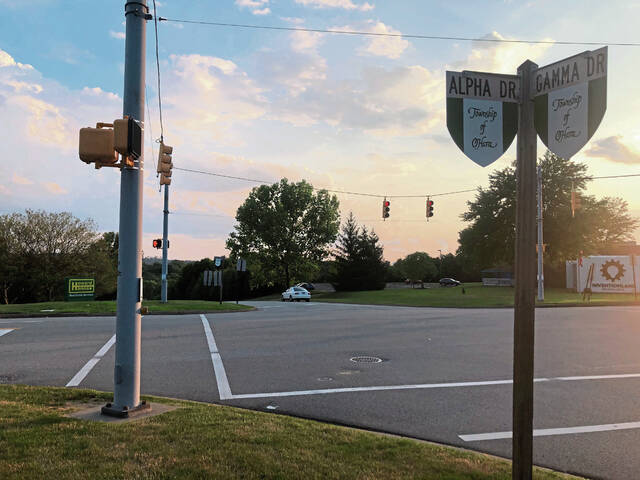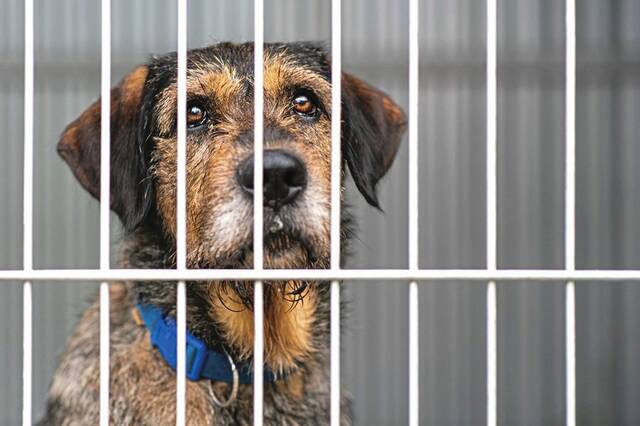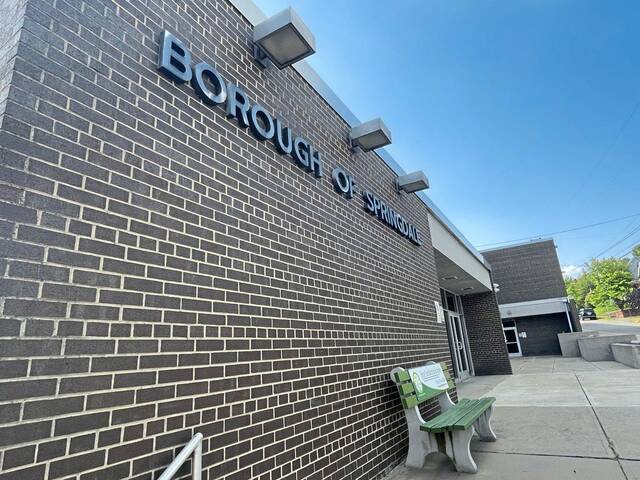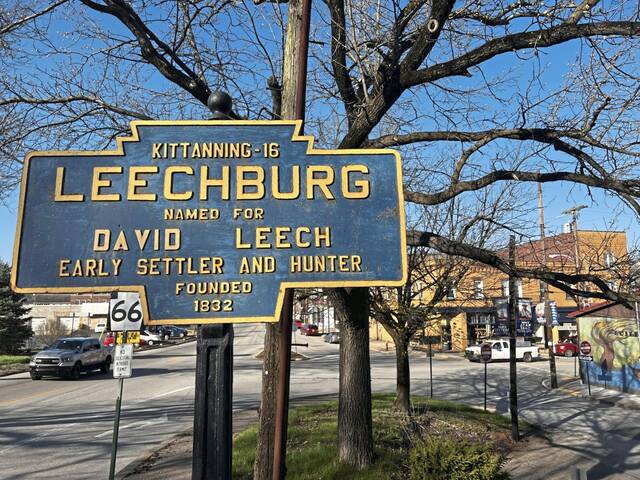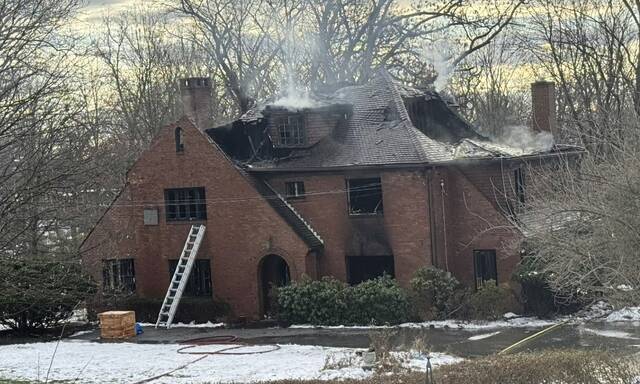Allegheny Valley Hospital has enough space within its own walls to support as many as 100 more beds by converting the likes of physical therapy areas and family waiting lounges into clinical units, the hospital’s president said.
Should the anticipated spike in covid-19 cases overwhelm the Alle-Kiski Valley’s existing options, the hospital’s leaders have been coming up with plans to expand inpatient capacity by as much as 30% to 50%, according to AVH President Vicenta Gaspar-Yoo.
“We actually have quite a bit of space at Allegheny Valley,” Dr. Gaspar-Yoo told the Tribune-Review.
Allegheny Valley — an Allegheny Health Network hospital just off Route 28 in Harrison — has been treating a small number of patients for covid-19.
Most make arrangements in advance to ensure extra precautions are in place upon their arrival through an isolated entrance. Anyone who shows up at the hospital with possible covid-19 symptoms is triaged at a white tent erected outside the emergency department.
The 188-bed hospital has the capacity to treat most patients with complications related to covid-19, as well as a 16-bed intensive care unit for treating severe cases that might require a ventilator. Officials would not disclose the total number of patients with the disease treated there so far, but Gaspar-Yoo said covid-19 admissions have not exceeded three or four patients in a single day.
“But we know covid-19 cases are still growing in Western Pennsylvania,” Gaspar-Yoo said. “We are still waiting for the surge.”
She echoed Pennsylvania Health Secretary Rachel Levine by reiterating that although various models and estimates suggest a likely surge, it remains unclear how severe the coronavirus spread could become locally.
Citizens General not an option
At least three days a week, Gaspar-Yoo has been getting updates on contingency plans exploring how to turn typically “nontraditional, nonclinical” areas into suitable environments for patient care.
No such plans are in the works to make use of the former Citizens General Hospital in New Kensington, Gaspar-Yoo said.
Because the building has sat dormant for so many years, getting the facility in shape for patients would be expensive and time-consuming. Most of the building doesn’t even have utility services in place, Gaspar-Yoo said. Allegheny Health Network, which owns Allegheny Valley and the property of the shuttered Citizens hospital, instead is striving to make the most of existing hospital space at AVH and elsewhere.
Across the country, state and local governments are working with health care officials and the Army Corps of Engineers to identify nontraditional places where they could house a large influx of patients as the coronavirus continues to spread.
In some areas, shuttered hospitals, empty hotels and college dormitories are being looked at as possible overflow medical sites that could handle either nonemergency patients or patients with covid-19.
In addition to Navy hospital ships and a tented ICU unit in Central Park, New York City is making use of the Javits Convention Center, which has been converted into a 2,500-bed emergency treatment facility.
Minnesota emergency management officials are considering converting a shuttered private prison into clinical space. The David L. Lawrence Convention Center in Downtown Pittsburgh is among spaces being eyed as a possible last-resort option.
The level of covid-19 cases in Western Pennsylvania has not stretched medical systems to the point where more space is needed to treat patients — but authorities want to be prepared before such space might be needed, according to Lt. Col. Jonathan Klink, commander of the Army Corps of Engineers Pittsburgh District.
Patient volume plummets
Total daily patient volume at Allegheny Valley Hospital is down by 65% to 75% from January, with about 60 to 70 of 188 licensed beds occupied as of Sunday,Gaspar-Yoo said.
Emergency department visits are down by about 30%, in line with other hospitals in the region as people comply with the statewide stay-at-home order and turn to telemedicine appointments for minor issues.
“People are staying home, and we have stopped elective surgeries since the first week of March,” Gaspar-Yoo said.
AVH officials are not yet worried about the supply of N95 respirators. The medical-grade masks that filter up to 95% of airborne particles are in increasingly high demand nationwide.
But the hospital is being “selective” in doling them out to ensure the protection of health care workers who have direct contact with patients, Gaspar-Yoo said. All other employees wear a surgical mask at minimum. Gowns, gloves and goggles are worn at all times when working with a patient who has or is suspected of having covid-19.
“We’re pretty confident with our supply,” Gaspar-Yoo said. “But what we really have to gear up for is the surge.”
The hospital has the ability to treat most patients with covid-19, with exceptions including patients suffering from other urgent issues such as trauma injuries or specialty surgeries that might require a transfer elsewhere.
So far, none of the hospital’s 950 employees has tested positive for covid-19 — “knock on wood,” Gaspar-Yoo said.
The hospital is following all CDC guidelines and urging any employees who feel sick to stay home. Some have done so and returned after 14-day self-quarantines.
Officials are not yet taking the temperatures of employees upon arrival but are considering doing so, Gaspar-Yoo said. Also of concern is evidence showing higher-than-expected numbers of patients who are asymptomatic, or who have the disease but exhibit no obvious symptoms.
Workers have been grateful for the outpouring of community support from local organizations as well as individuals, Gaspar-Yoo said. Several groups have been dropping off food and care packages for the staff.
On Friday afternoon, an anonymous man stood outside the ER with a large cardboard sign hanging from his neck that made many hospital employees smile, Gaspar-Yoo said.
The sign had a simple message, in capital letters: “THANK YOU ALL.”


